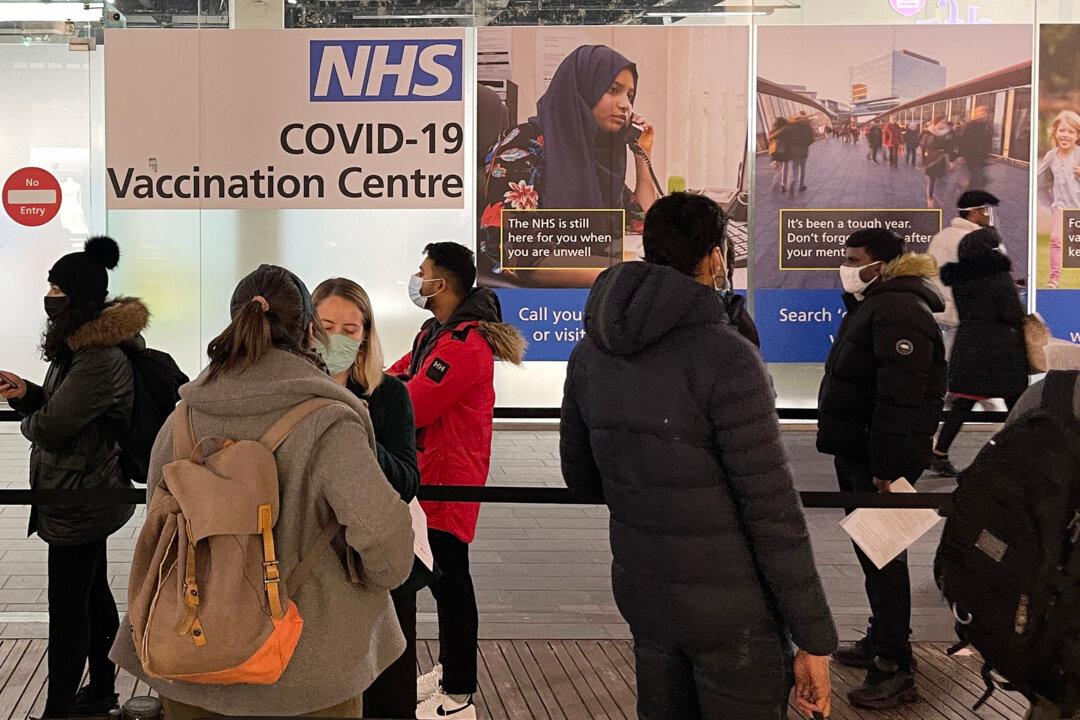England has temporarily suspended the 15-minute observation period after administering Pfizer and Moderna COVID-19 vaccines, the UK government said on Tuesday.
The move to accelerate the rolling out of booster doses was announced after the UK’s medicines regulator and chief medical officers gave the green light to do so.





